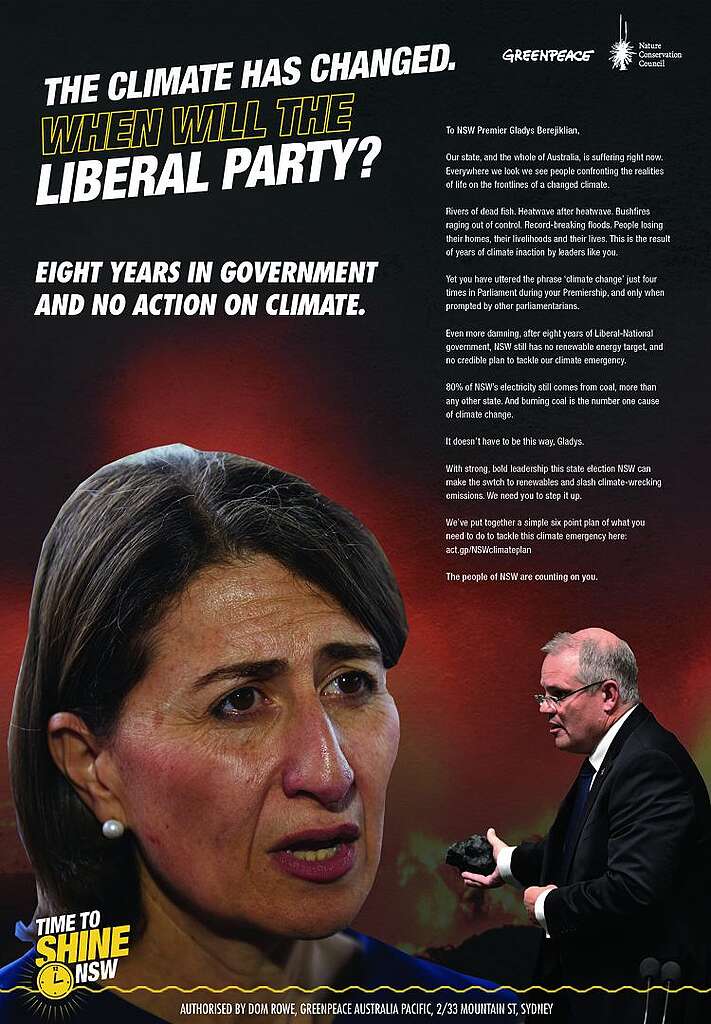“The climate has changed. When will the Liberal Party?” is the blunt message that NSW voters have sent to NSW Premier Gladys Berejiklian, in a full-page ad in the Sydney Morning Herald.The advertisement features an open letter to the Premier against the backdrop of a raging fire. At the bottom of the page is Berejiklian’s face, alongside an image of Prime Minister Scott Morrison parading a lump of coal around Parliament.
“Our state, and the whole of Australia, is suffering right now. Everywhere we look we see people confronting the realities of life on the frontlines of a changed climate,” the open letter reads.
“Rivers of dead fish. Heatwave after heatwave. Bushfires raging out of control. Record-breaking floods. People losing their homes, their livelihoods and their lives. This is the result of years of climate inaction by leaders like you.”
More than two-thirds of Australians want the government to replace our ageing coal fleet with renewable energy, but despite the overwhelming public demand for climate action, Berejiklian has only uttered the words “climate change” just four times during her eight years in Parliament. [1]
“Burning coal is the number one cause of climate change. Yet 80 percent of NSW’s electricity still comes from coal, more than any other state,” the letter continues.
“It doesn’t have to be this way, Gladys. With strong, bold leadership this state election NSW can power renewables and reduce climate-wrecking emissions. We need you to step it up.”
Climate advocacy groups including Greenpeace, the Nature Conservation Council of NSW, and Solar Citizens, are calling on all parties contesting the NSW election to ensure:
- The NSW Government tenders for at least 4000 MW of large-scale clean power, along with large-scale battery storage;
- All government operations are powered with 100 percent renewable energy, including schools and public hospitals during the next government (2019-2023);
- Every household (including low-income and rental properties) can access solar power within 10 years by introducing a Solar For All Rebate and helping families with solar install batteries;
- Doubling New South Wales’ energy productivity by 2030 by investing in a range of energy efficiency programs; and
- Legislate for net-zero carbon emissions by 2040, and ensure all government decisions consider the impact of policies on climate change.

Notes:
